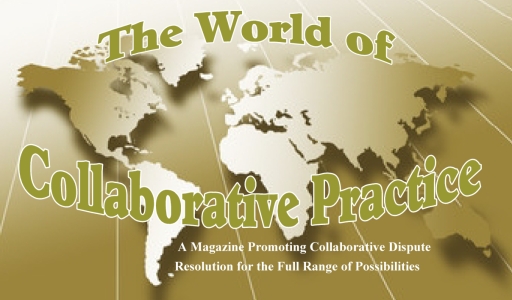
Tags
Related Posts
Share This
Involving Non-paid Collaborative Assistants in the Process
In my jurisdiction of Florida, in order to become certified as a Family Law Mediator, you must observe a certain amount of mediations. This structure helps newly trained mediators become more comfortable in their role and also helps with quality control.
We can learn from the successes of mediation, but one of the largest challenges that my collaborative community has faced is the unwillingness of clients and many professionals to permit “observers” or “shadows” on their cases. As a relatively young yet rapidly growing collaborative community, offering newly-trained practitioners the opportunity to see a collaborative case has become vitally important as a training tool.
But there is insecurity amongst many professionals. The vast majority of practitioners in Tampa Bay have had less than ten collaborative cases, and a large chunk of that group has had two cases or less. Accordingly, many professionals are not yet confident enough in their own skills and abilities to be observed as an example.
What is more, clients generally do not like to be observed. Though we strongly believe that collaborative practice is the best and least painful way for spouses to go through divorce, this is still a deeply personal and traumatic time in clients’ lives. The analogy of a “teaching hospital” has been used in explaining to clients the need for observers, but that analogy oftentimes elicits a negative response because most people are just as uncomfortable being observed in hospital settings.
But we have found a solution with which everyone has been comfortable. Though clients and many professionals don’t like to be “observed” or “shadowed,” they do like to be assisted, especially if that assistance is for free. And so we have created the category of Collaborative Assistants. Their job is to (i) coordinate the clients’ and professionals’ schedules, (ii) take minutes or notes during meetings and teleconferences, and (iii) make copies and do other administrative tasks during meetings. So that they understand the process, Collaborative Assistants must have attended at least a two-day basic training that meets the standards of the International Academy of Collaborative Professionals.
This arrangement benefits clients in that the professionals will be paying attention to them and their needs rather than being distracted by minute-taking or copy-making and the clients will not be charged for writing up the first draft of minutes. It benefits professionals in that it takes tedious chores off of their plate so that they concentrate on giving their clients the best service. During debriefing sessions the professionals benefit from an additional perspective. And Collaborative Assistants benefit in that they get to connect the theory of collaborative process with the experience of collaborative practice.
This is the classic win-win-win scenario. I have found the use of Collaborative Assistants so helpful to everyone that they are now a mandatory part of my collaborative cases and a standard provision in my participation agreements.
What are the strategies that your collaborative community has utilized to help newly-trained collaborative professionals?What other tasks do you think would be appropriate for Collaborative Assistants to take on?









Share your thoughts here and in your network.